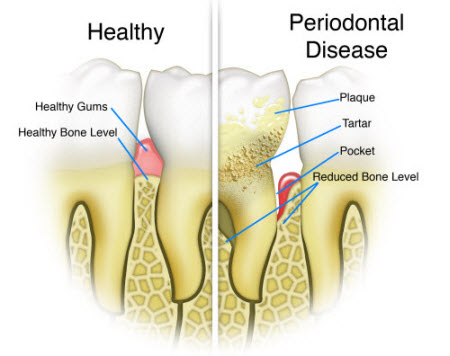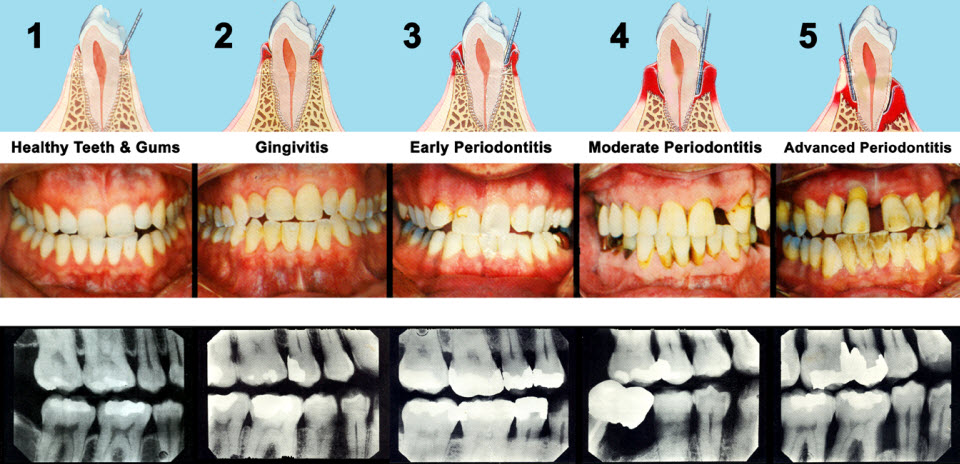Dr Priya de Sousa has completed her masters M.D.S in the field of periodontics and implantology. She is a certified implantologist. A periodontist is a dentist who specializes in the prevention, diagnosis, and treatment of periodontal disease, and in the placement of dental implants. Periodontists are also experts in the treatment of oral inflammation. Periodontists receive extensive training in these areas, including three additional years of education beyond dental school. They are familiar with the latest techniques for diagnosing and treating periodontal disease, and are also trained in performing cosmetic periodontal procedures.
Who Should See a Periodontist?
Some patients’ periodontal needs can be managed by the general dentist. However, as more and more patients are exhibiting signs of periodontal disease, coupled with research that suggests a relationship between periodontal disease and other chronic diseases of aging, periodontal treatment may necessitate a greater understanding and increased level of expertise by a trained specialist.

Gum disease is very common – it affects more than half of adults with natural teeth. If treated in the early stages, the effects can be reversed.
Gingivitis
If you have gingivitis, your gums become irritated by plaque, which is a mixture of food, bacteria and bacterial waste products that can build up on your teeth. If you don’t clean plaque off your teeth regularly, your gums will become red, swollen and shiny, and they may bleed. This is the early stage of gum disease and is completely reversible. If you remove the plaque, your gums will recover. But if you don’t clean the plaque off your teeth, the gingivitis may develop into periodontitis
Periodontitis
If you don’t get treatment for gingivitis, your gums may begin to pull away from your teeth, leaving small pockets. These pockets trap plaque that you can’t reach with a toothbrush. Over time, the plaque will harden to become tartar (calculus). Plaque and tartar build-up can cause further irritation, which may gradually spread to the bone structures around your teeth. As time goes on, the pockets can get deeper and more difficult to clean, and your gum and bone may shrink. This is called periodontitis. If your gums shrink, they can expose some of the roots of your teeth, making them sensitive. And if you have bone loss, your teeth may become loose. If you don’t get treatment for a number of years, your teeth may fall out, or need to be taken out by a dentist.

Periodontal Treatments
Periodontists often treat more problematic periodontal cases, such as those with severe gum disease or a complex medical history. Periodontists offer a wide range of treatments, such as scaling and root planing (in which the infected surface of the root is cleaned) or root surface debridement (in which damaged tissue is removed). They can also treat patients with severe gum problems using a range of surgical procedures. In addition, periodontists are specially trained in the placement and repair of dental implants.
During the first visit, the periodontist usually reviews the patient’s complete medical and dental histories. It is extremely important for the periodontist to know if any medications are being taken or if the patient is being treated for any condition that can affect periodontal care, such as heart disease, diabetes, or pregnancy
The periodontist examines the gums, checks to see if there is any gum line recession, assesses how the teeth fit together when biting, and checks the teeth to see if any are loose. The periodontist will also take a small measuring instrument called a probe and place it between the teeth and gums to determine the depth of those spaces, known as periodontal pockets; this helps the periodontist assess the health of the gums. X-rays may also be taken to observe the health of the bone below the gum line.
If you have any of these above symptoms take an appointment with Dr Priya today!